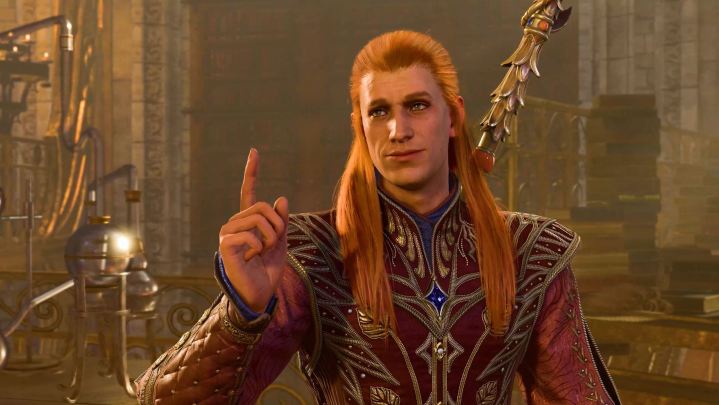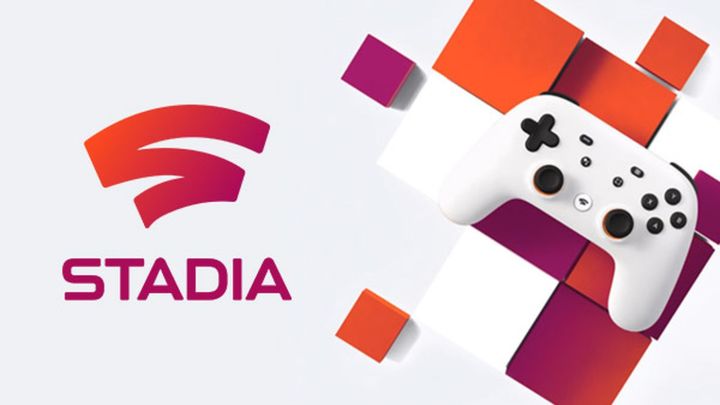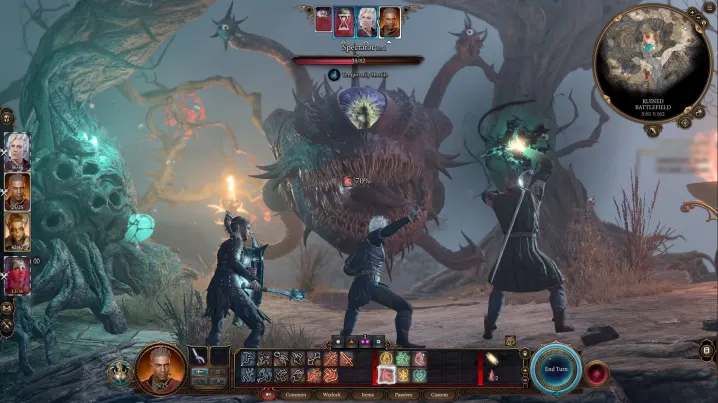Baldur’s Gate 3 took the gaming world by storm after leaving early access on August 3, making it one of the most successful PC game launches in recent memory. It’s also coming to PlayStation 5 soon, but Baldur’s Gate 3’s wild success has me thinking about another platform the game was originally going to come to: Google Stadia.
Believe it or not, Baldur’s Gate 3’s announcement actually happened during a Stadia Connect showcase in June 2019. It was positioned to be the cloud streaming service’s killer app, but Stadia would be dead by the time it hit its 1.0 release. Now that the game is out and a smash hit, I can’t help but think about how the two could’ve complemented each other if Google hadn’t handled Stadia so poorly.
From its large file size to the appeal of not having to sit at a desktop to play this 100-hour game, a cloud version of Baldur’s Gate 3 doesn’t sound like a bad idea right now. The critical and commercial success of Baldur’s Gate 3 shows that Google could’ve had a hit on its hands had it focused on selling a library of great games that benefited from cloud tech, rather than the tech itself. Baldur’s Gate 3’s success is not just a testament to Larian Studios’ success, but to Google’s failure as well.
Stadia could have made Baldur’s Gate 3 better
Baldur’s Gate 3 has gripped me in a way few games do. I played over 20 hours of the title in a weekend, marathoning it in a fashion I don’t usually do for a game I’m not reviewing. I’ve enjoyed its excellent writing and the freedom of choice that’s allowed me to circumvent entire set pieces by killing a boss like Minthara early or letting Nere suffocate in a cave. Even as I’m writing this, there’s a yearning to play more of Baldur’s Gate 3 in the back of my mind. But despite that, I don’t love that I have to sit at my desktop to play it.
My gaming PC is the same one I work from, so I don’t always love sitting at it for extended periods after work unless I have to. I’ve ignored those feelings for the most part and played a lot of Baldur’s Gate 3 at my desk, but I’ve also found myself using Steam Link to stream the game to my Logitech G Cloud Gaming Handheld. The added portability and versatility cloud gaming provides is a hidden strength.

While I could play it on my Steam Deck, I’m hesitant to install Baldur’s Gate 3 on it because of its massive file size — 123.4 GB is a massive chunk of my Steam Deck’s internal memory and not something I want just one game to take up. That was another problem a Google Stadia version of the game could have solved. The ability to cross-save Baldur’s Gate 3 to that platform and play there if I ever needed to open up space on my PC would have been useful.
Then there’s the promised Stadia-exclusive Baldur’s Gate 3 features that never saw the light of day. Crowd Choice would have added a fun multiplayer wrinkle for streamers who let their audience influence their character’s choices and dice roles. Stream Connect would have allowed players to see what their friends were doing on their screens in multiplayer. Finally, State Share, a standout Stadia feature that allowed players to save their game state with a link and give it to others, would have made it a lot of fun to swap characters around or see how your friends’ choices and worlds differed from yours,. Coupled with cross-saving, it would have made it easy to try anyone’s game save on any platform Baldur’s Gate 3 was available on.
 Google
GoogleBaldur’s Gate 3 is still a fantastic game without all of these things when playing on PC. But being able to save some hard drive space, have some more versatility in where I can play it, and use some neat features like State Share would have made me consider making Stadia my preferred platform to play Baldur’s Gate 3 had the service still been around today. Sadly, there was never a chance for that possibility to come to fruition, and we’ve yet to see what “alternative streaming solutions” Larian Studios has in store for the game.
Baldur’s Gate 3 could have made Stadia better
Baldur’s Gate 3 was in early access on Google Stadia prior to the service’s shutdown and didn’t necessarily get much attention there. But if it had eft early access on PC and Stadia simultaneously, that would have been a major boon for the cloud gaming service as it would be available ahead of any console port. Even getting a 1oth of that massive 814,000 concurrent Steam player count probably would’ve made it one of the most successful Stadia games.
Throughout its life span, Stadia lacked a hit that felt closely associated with the platform. Baldur’s Gate 3 definitely would have been that game, so Google was wise to back it early on and start marketing it alongside the platform. Sadly, other aspects of Google’s management of Stadia weren’t up to par. Now that Stadia has been shut down for over half a year, it’s easy to look back at everything that went wrong.
It’s no secret that Google Stadia launched too early and without many compelling games. Its only exclusives were indies that failed to build up much buzz and ports that tended to lag behind other platforms. Even the early access version of Baldur’s Gate 3 itself didn’t launch until almost one year into the service’s life span. If Google had kept Stadia in the testing or beta stages for a year or two longer instead of marketing the November 2019 launch as a wide release, it might have been able to launch with more games or at least deliver strong exclusives on a more consistent basis.
And some reports suggest Google did have some solid games in the pipeline besides Baldur’s Gate 3. Axios claims that Supermassive Games’ The Quarry and Squanch Games’ High on Life — both 2022 sleeper hits — were originally Stadia exclusives. Google also reportedly had projects in the works with famous developers like Shenmue’s Yu Suzuki before canceling them too.

It’s not hard to imagine a world where Stadia’s timing was a bit better, with it releasing closer to games like The Quarry, High on Life, and the early access version of Baldur’s Gate 3. Instead, it launched into a software dry spell that doomed the platform from the start. The success Baldur’s Gate 3 has seen these past few days serves as another reminder of Google Stadia’s failure.
Google advertised and even launched in early access a critically acclaimed and much-played game that could have been a great example of cloud gaming’s potential. Instead, it’s a defunct footnote in Baldur’s Gate 3’s development that Google will see no benefits from. Baldur’s Gate 3 could have saved Google Stadia, but Google never got Stadia to a place where this game could do so.
Baldur’s Gate 3 is now available on PC. It’s coming to PS5 on September 6.
Editors’ Recommendations
Services Marketplace – Listings, Bookings & Reviews